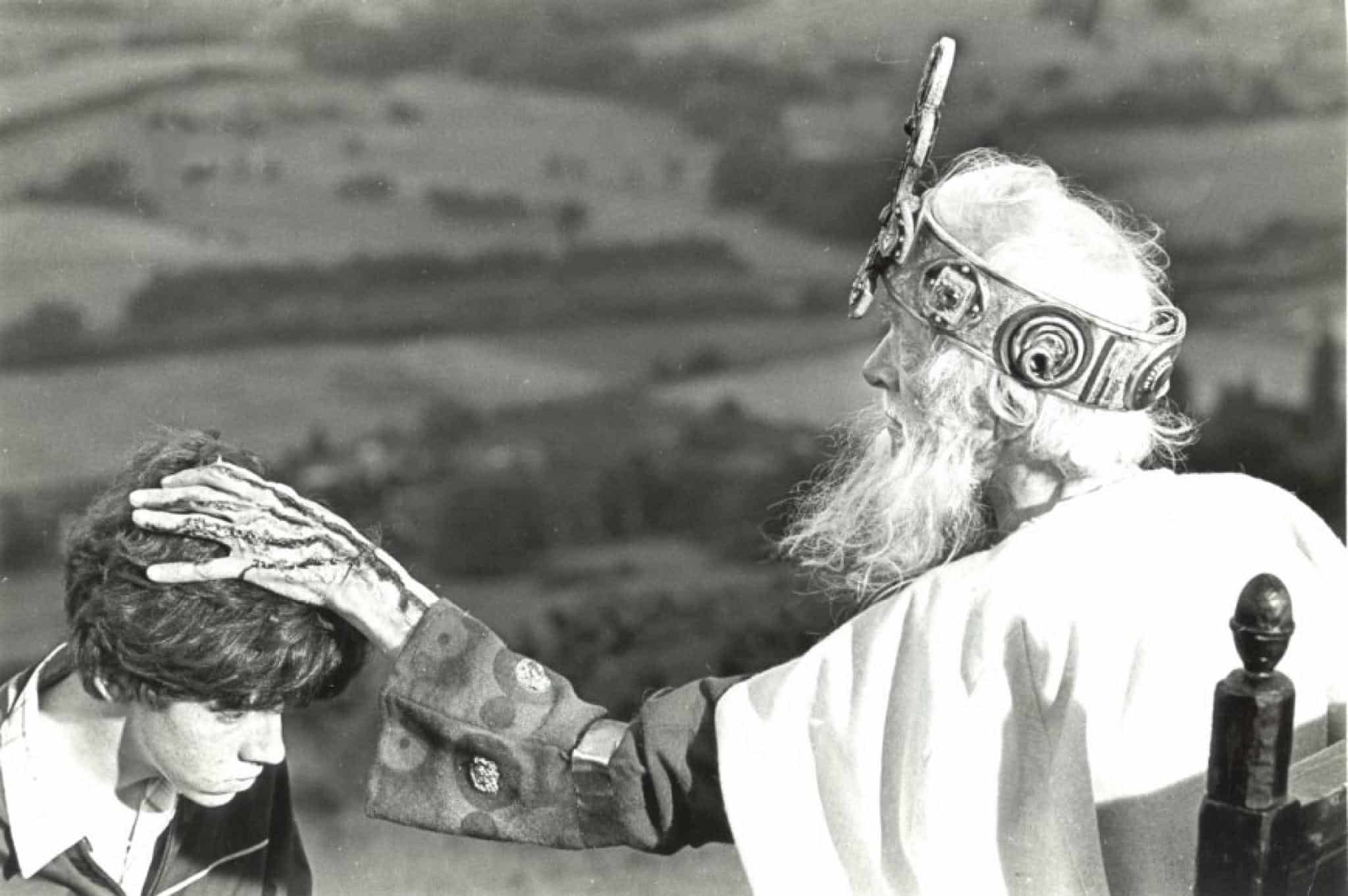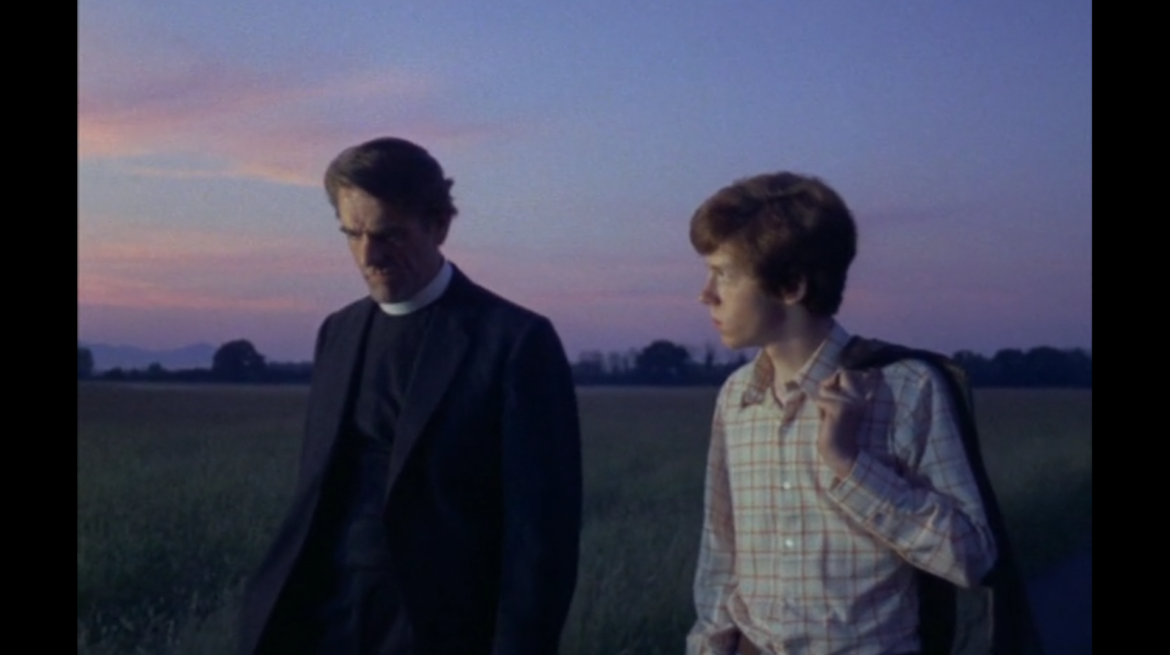PENDA'S FEN AND THE LOST ATMOSPHERE OF TELEVISION

There's a scene in Alan Clark's phantasmagorical 1974 television drama 'Penda's Fen' where a teenage boy called Stephen is walking home one evening with his father, a vicar, as the sun slowly sets upon the Malvern Hills into twilight dusk and it becomes instantly noticeable that a familiar atmosphere of quiet has descended in between the words uttered by the two characters. It's the same serenity you find yourself going on an evening walk and in great plays of the theatre where you suddenly forget the awkward seat you're sat in and become dissolved in the moment along with the characters wrapped up in their narrative threads.
This quietness is especially rare in television but even more so in these days of 24/7 streaming content where every scene is required to be filled with a diegetic or non-diegetic soundtrack of some description.
Yet here in the scene I've described from 'Penda's Fen' we have two people talking and the sounds of swallows returning to their nests for the night. What happened to such stillness in television and film? The power of holding a scene without the intrusion of excessive sound is precious and one that has to be well-earned by the writer and director.
Aside from sound and music, atmospherics in television and film are also captured in the way scenes and stories look and are filmed. What was it back then (mostly in the 1970s and 1980s) when the singular use of locations and confidence in holding scenes in silence was so much more prevalent?
In a word ... authenticity.
There appeared to be a strong desire amongst creative production units back then to achieve authenticity even when that involved surrealism, magic realism, or outright symbolist fantasy as in a tone-shifting piece such as 'Penda's Fen'. This in turn allowed for a complete suspension of disbelief and trust in the audience to go on a narrative journey and not pander to excessive self-explanation, exposition, self-consciousness or deflecting any hope of sincerity by using post-modern irony where in many instances these days the fourth wall is routinely broken.
Re-watching 'Penda's Fen' recently I was struck by the uncompromising integrity to its source material and how that assurity of confidence acts as a compelling attraction for the audience watching it, an unwavering, almost devout belief in its own authenticity and narrative purpose. It felt as natural as the Malvern landscape in which its story plays out and even the air from those famous hills seemed to permeate through the screen.

.